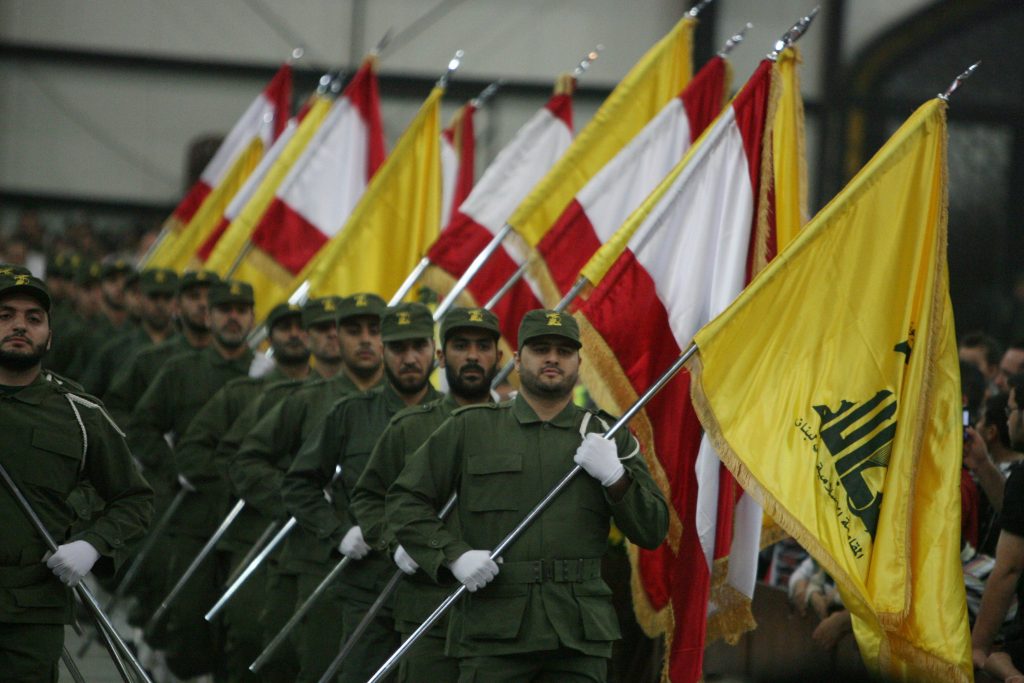Australia/Israel Review
Scribblings: Give War a Chance?
Aug 2, 2022 | Tzvi Fleischer

Lebanon is today an absolute basket case, with a plummeting standard of living and shortages of basic necessities such as food and fuel, constant blackouts, a collapsing currency and financial system, and political paralysis. You’d think the last thing a country in such terrible shape needs is a war.
Yet, as Amos Harel outlines in this edition, Israel and the Iran-sponsored Lebanese terrorist group Hezbollah may today be closer to a new war than they have ever been since they fought an actual war in 2006.
This is not because either side wants war, but because Hezbollah has decided to strongly push the envelope regarding a dispute about the maritime border between Israel and Lebanon that could easily be solved in a mutually beneficial way. A resolution to that dispute – which the US has been mediating for a number of years – would allow Lebanon to extract offshore gas from fields known to exist along the maritime boundary area and make some money to address its urgent welfare needs. There have been numerous compromises proposed which would be advantageous to Lebanon, but Hezbollah has effectively vetoed them all.
Hezbollah recently sent four reconnaissance drones to buzz an Israeli offshore gas drilling platform in Israeli waters, and is now openly threatening to launch a war if Israel does not capitulate to its demands regarding the maritime boundary by September. Hezbollah leader Hassan Nasrallah is threatening to attack “All the [gas] fields, wells, and rigs” along the so-called “Palestinian shore”.
Bizarrely, Hezbollah is trying to sell a war with Israel – or at least the threat of such a war – over the maritime boundary as the solution to all of Lebanon’s problems.
In an address on July 25, Nasrallah insisted:
We only want our rights and we’re escalating our rhetoric so that the Americans and Israelis submit, because the course of the collapse in Lebanon is continuing.
If the alternative is that… Lebanon is pushed towards collapse, hunger and people fighting one another…war is a much more honourable alternative. The threat of war, and even going into war, is much more honourable and glorious. The first track of letting things collapse and go into ruin has no future. There is no future in people fighting over food, but a war has a future. If we decide to go to war, this alternative has a future.
The enemy can be defeated – before the war, when it begins, during the war, when it ends…Then we will be able to impose our conditions, bring in hundreds of millions of dollars, and save our country.
Given the state of Lebanon, this “Give War a Chance” message seems like madness – especially when there is an obvious alternative in the form of simply settling the border dispute via a compromise, without any risk of bloodshed. Yet it is worth remembering that Hezbollah’s interests are not really Lebanon’s. In fact, to a great extent, it’s Hezbollah’s history of “madness” in service of its pro-Iranian and sectarian aims that is responsible for paralysing and hollowing out the Lebanese state and leading the country to the disaster it currently faces in the first place.
A better way for Lebanon
Speaking of Lebanon and its severe problems, the international community would do well to look at a new report on policy toward Lebanon from one of Australia’s best-known strategic analysts David Kilcullen, now based in Washington.
His new report, titled “Missing the Mark: Reassessing U.S. Military Aid to the Lebanese Armed Forces,” concludes that the US policy – with broad international support – of spending large sums of aid money funding, training and equipping the Lebanese Armed Forces (LAF) to serve “as an institutional counterweight to Hezbollah” is not working.
The report says that US efforts to bolster the LAF over the past 15 years have coincided with “a significant increase in Hezbollah’s influence.”
It notes that, “The argument for strengthening the LAF rests in part on the assumption that the LAF is in competition with Hezbollah for prestige and influence.” However, it says, this is not really the case and, “in fact, the two are conjoined at the highest levels because Hezbollah’s influence over Lebanon’s civilian authorities is so extensive. The terror group has effective veto power over the choice of prime minister and the actions of the Lebanese Cabinet.”
“Hezbollah’s influence over the institutions of government ensures the LAF does not threaten the group’s vital interests,” the report notes.
Kilcullen’s key policy recommendation is simple:
“Abandon the LAF counterweight theory and focus instead on directly weakening Hezbollah by interdicting Iranian and Syrian support for the group; by maintaining or increasing sanctions on Iranian sponsorship of Hezbollah; by allying with anti-corruption, non-Hezbollah, and anti-Hezbollah components of the civilian government; and by amplifying anti-corruption voices within the opposition movement.”
The international community would do well to take heed – especially now that Lebanon’s situation, and the instability it projects, has become so desperate, and Hezbollah’s role in creating and maintaining that situation so clear.






